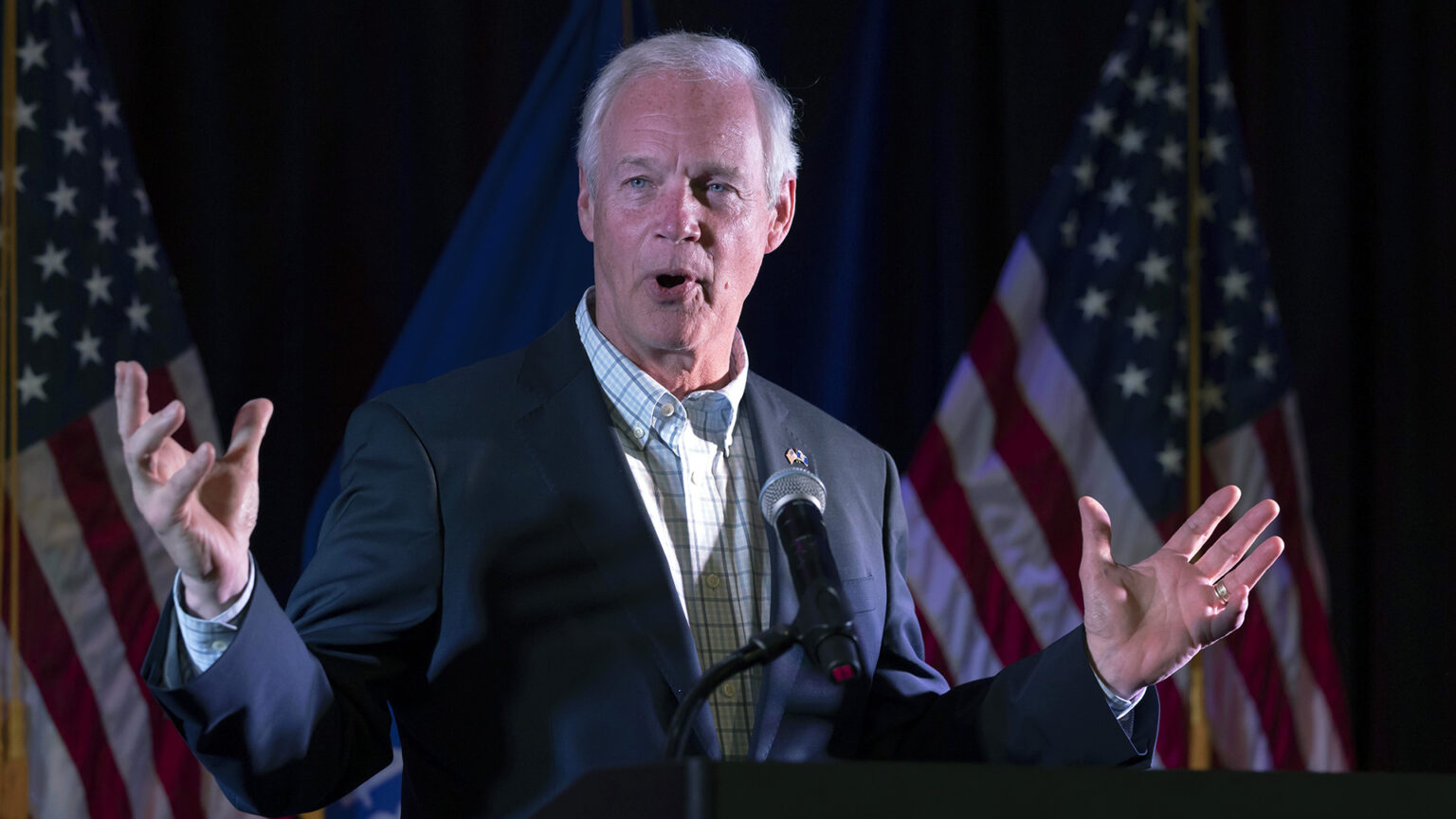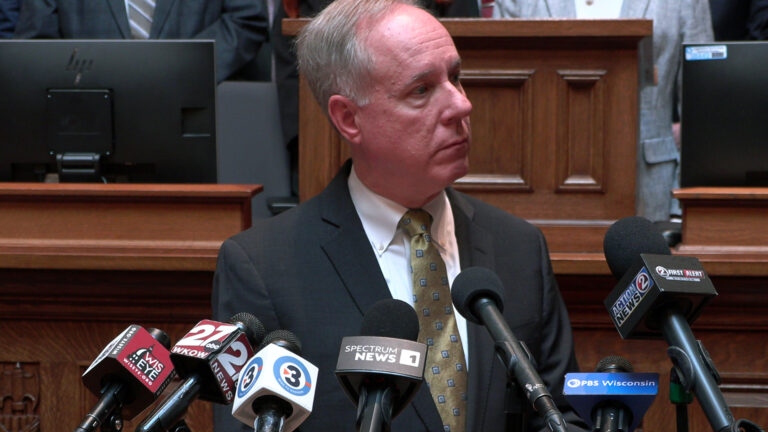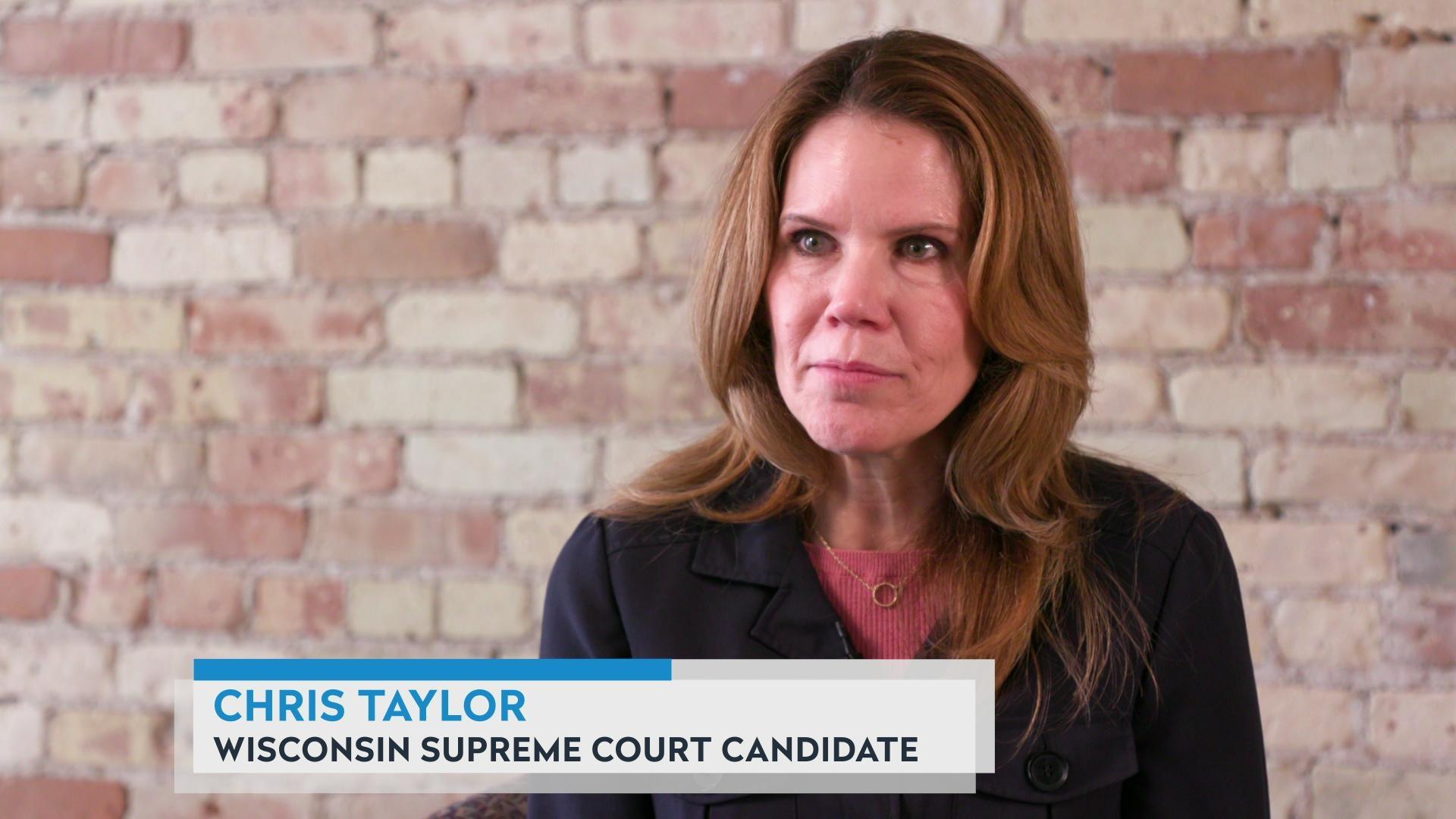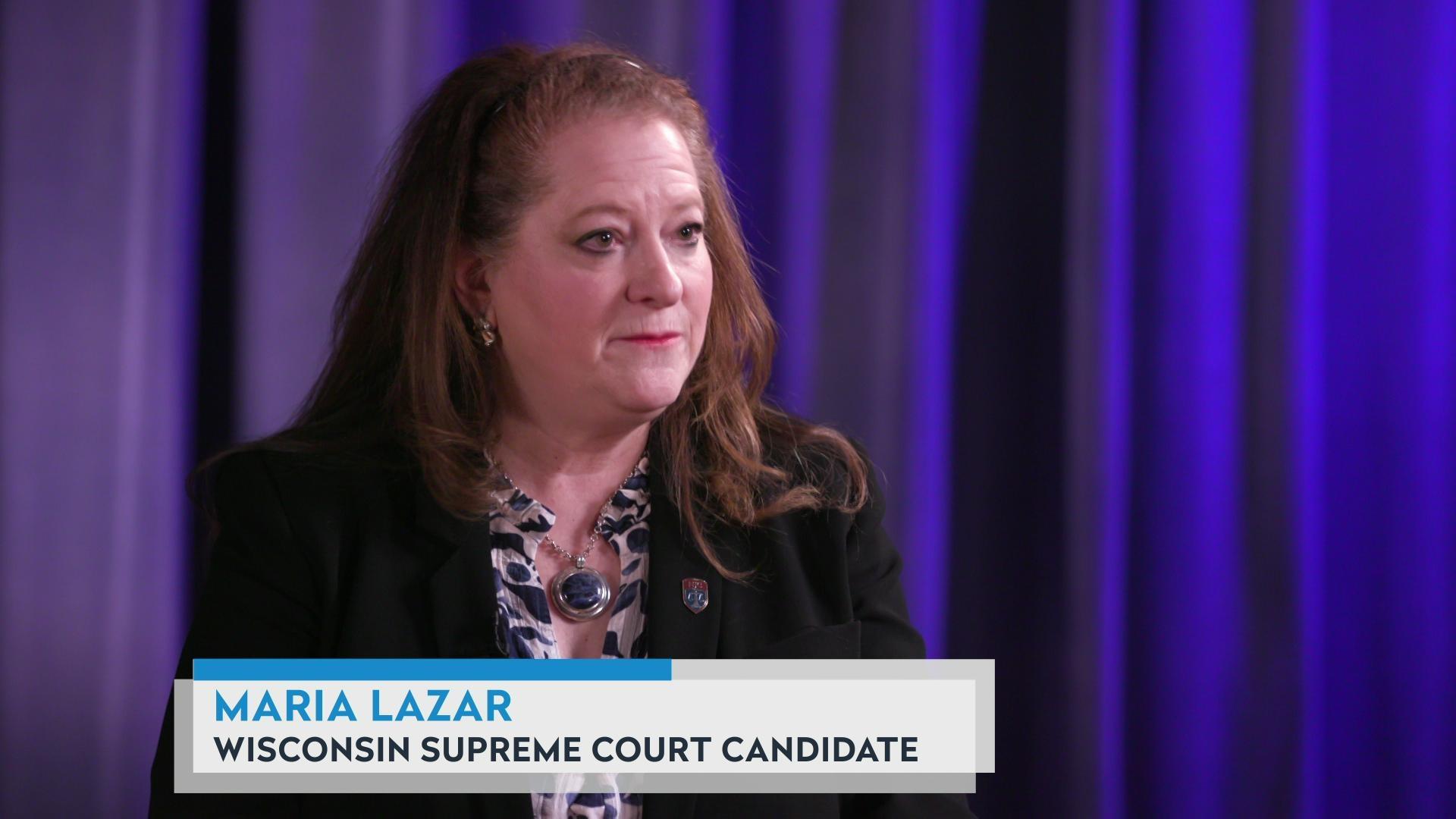Johnson holds narrow lead over Barnes in Wisconsin's 2022 US Senate race
Republican incumbent U.S. Sen. Ron Johnson stopped short of declaring victory early on Nov. 9, telling supporters he was confident there was no way for Democratic challenger Mandela Barnes to win the race.
Associated Press
November 9, 2022

Sen. Ron Johnson, R-Wis., speaks to his supporters in the early morning hours at an election night party in Neenah on Nov. 9, 2022. (Credit: AP Photo / Mike Roemer)

MADISON, Wis. (AP) — Republican U.S. Sen. Ron Johnson held a narrow lead early Nov. 9 as he sought to win a third term in battleground Wisconsin against Mandela Barnes, a Democrat who refused to concede the race until all votes had been counted.
Johnson stopped short of declaring victory early in the morning, telling his supporters he was confident there was no way for Barnes to win the race.
“This race is over,” Johnson said.
Barnes’ campaign spokeswoman, Maddy McDaniel, said, “No matter what anyone says, we are committed to making sure every vote is counted. We will wait and see what the Wisconsin voters have decided after all their voices are heard.”
At 1 a.m. Nov. 9, with more than 90% of the expected votes counted, Johnson held a narrow lead of just over a point. Under Wisconsin law, a recount can only be ordered if the margin of defeat is less than a point.
Johnson, one of former President Donald Trump’s biggest backers, painted Barnes as “dangerous” and soft on crime, hitting on one of the GOP’s biggest campaign themes this cycle as it tries to win back control of the Senate.
Barnes, who was seeking to become the state’s first Black senator, tried to make the race about abortion, highlighting Johnson’s long support for overturning Roe v. Wade.
Both Barnes and Johnson each attempted to paint the other as too radical for Wisconsin, a perennial swing state that Trump won in 2016 but lost in 2020 to President Joe Biden by slim margins each time.
“Other than hollow left-wing rhetoric, I’m not sure what he’s ever accomplished or what he has to offer,” Johnson said of Barnes in a debate.
Barnes, the lieutenant governor, emerged from his August primary victory with a slight lead in the polls, but saw that advantage disappear under a barrage of attack ads on the crime issue.
Like many Democrats, Barnes tried to make the race about abortion rights. Johnson, a longtime backer of making abortion illegal, tried to blunt the issue by saying he supported a state referendum to let voters decide the issue. But he opposed an effort by Democratic Gov. Tony Evers to make such a vote possible.
“Women’s lives and women’s health is on the line,” Barnes said in a debate.
Johnson once said he wouldn’t seek a third term, then explained his change of heart in January by saying he saw the country in peril.
Barnes went after him over a series of provocative statements that coincided with Johnson’s drift to the right during the Trump era, including Johnson’s disbelief in climate change; attempting to deliver fake Republican Electoral College ballots to then-Vice President Mike Pence on Jan. 6, 2021; saying that he would have been more fearful during that insurrection if the U.S. Capitol invaders had been Black Lives Matter protesters; and advocating for unproven and untested alternative treatments for COVID-19, such as mouthwash.
Barnes, in a debate, said Johnson wanted to “lie and distract and hide from his own record.”
Johnson called for the end of guaranteed money for Medicare and Social Security, two popular programs that American politicians usually steer clear from, calling it the only way to keep them viable. Biden himself went on the attack over those remarks, saying Johnson wants “to put Social Security and Medicare on the chopping block every year.”
Johnson portrayed Barnes as a rubber stamp of Biden and Democratic congressional leaders, saying their policies have led to high inflation and gas prices.
Barnes spent much of the race on the defensive explaining his earlier positions before he was a Senate candidate in support of ending cash bail and diverting funding for police departments. Barnes, 35, played up his middle class background, contrasting himself with Johnson, a 67-year-old millionaire who voted for a Trump tax bill that benefitted some of his wealthiest donors.
Roughly half of Wisconsin voters say the economy is the most pressing issue facing the country, according to AP VoteCast, an expansive survey of more than 3,200 voters in the state.
Nearly all the state’s voters say inflation was a factor in how they cast their ballots. Roughly half named it as the single most important factor. Republicans were more likely to capture those voters, with about two-thirds of them casting ballots for Johnson.
Wisconsin voters say their families are being hit by the economy personally, with roughly a third saying they are falling behind. Those voters were also more likely to cast a ballot for Johnson.
Nearly 6 in 10 Wisconsinites said they are holding steady financially. In the Senate race, those voters were split between Johnson and Barnes.
Among those who named inflation as a factor in how they voted, nearly half say the rising costs of groceries and food were most important.
Nearly half of voters also named party control of the Senate as the single most important factor in the decision-making at the polls, and nearly all voters said it was at least a factor. Those voters were split between Barnes and Johnson.
 Passport
Passport











Follow Us